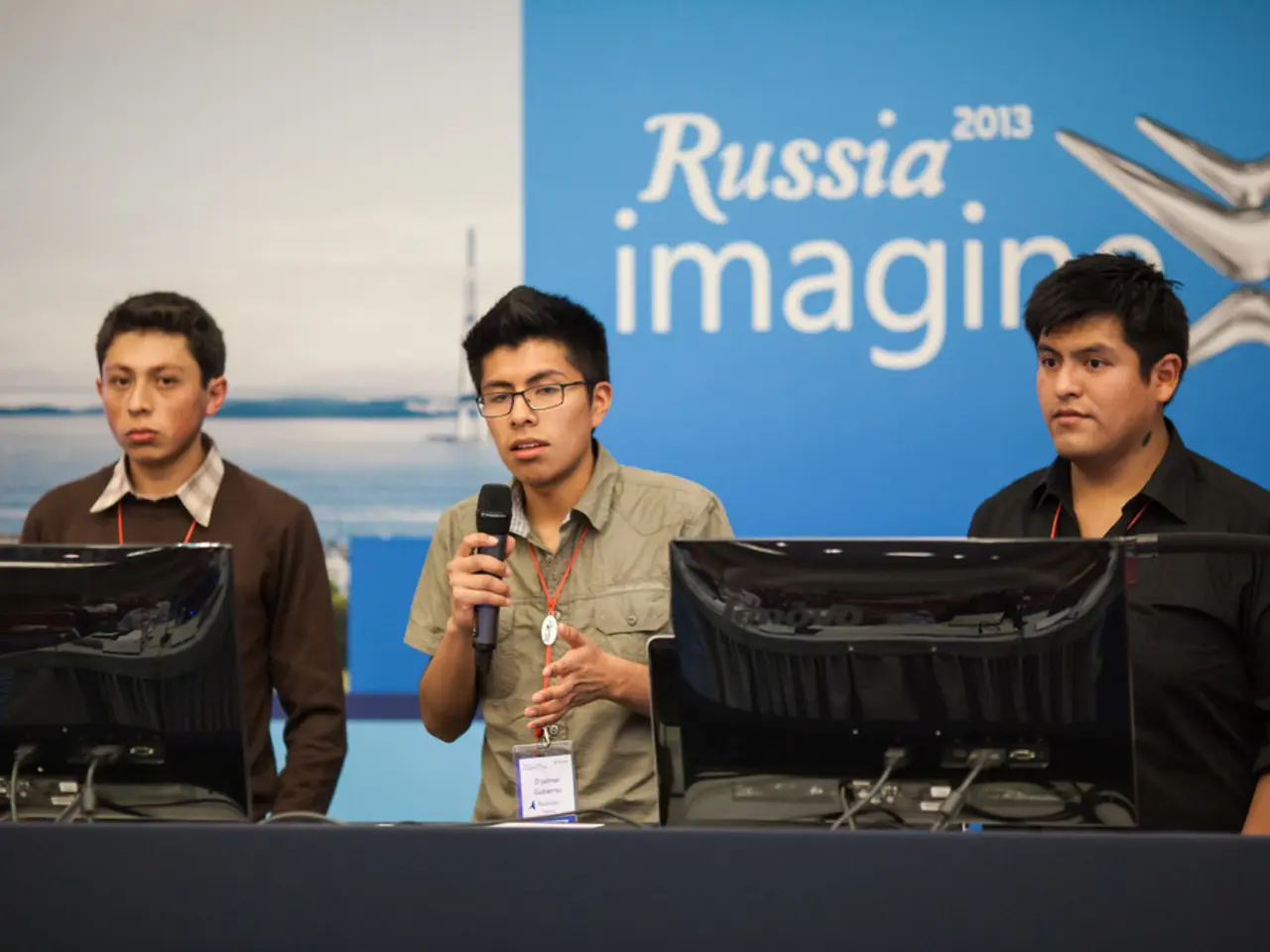Zelensky announced the imposition of specialized penalties against Russia
In a significant move, Ukrainian President Volodymyr Zelensky announced a series of special measures on June 21, aimed at increasing pressure on Russia. These measures come as part of a broader international effort to economically and financially pressure Russia due to its ongoing war in Ukraine.
One of the key announcements was the imposition of 'special sanctions' on Russia, which will be synchronized with those of Europe and other significant jurisdictions. Notably, the price cap on oil is expected to be reduced from $60 per barrel (in effect since 2022) to $45 per barrel. Additionally, there may be a ban on transactions with Russian gas pipelines "Nord Stream" and "Nord Stream-2," with only one string on the second remaining intact after the 2022 explosions.
The Russian Association of Industrial Mining, LLC "Kuzbass Mining," LLC "VTB Capital Trading," LLC "T-Projects," LLC "PSB Innovations and Investments," and other organizations are among those affected by these sanctions.
Meanwhile, the European Union has extended its sectoral sanctions against Russia for six more months through January 2026. These sanctions include bans on Russian oil imports, disconnection of major Russian banks from the SWIFT system, and restrictions on dual-use goods and luxury items. The EU has maintained sweeping restrictions on trade, finance, energy, and technology since 2014, significantly expanding them after Russia's 2022 full-scale invasion of Ukraine.
Efforts to adopt an 18th sanctions package targeting Russia’s energy revenues, including a lower price cap on seaborne crude oil and sanctions on refined fuel imports from third countries, have stalled due to opposition from Hungary and Slovakia, citing concerns over national energy security.
The United States has also imposed comprehensive sanctions, targeting the Russian financial sector, restrictions on trading Russian securities and assets of sanctioned individuals, energy sector sanctions, and a ban on imports of Russian enriched uranium. The US, together with G7 allies, implemented a price cap on Russian crude oil exports to limit Russia’s earnings, while allowing some waivers until 2028 for certain companies.
While the search results do not explicitly detail sanctions on cryptocurrency related to Russia, the broader financial sanctions, including asset freezes and SWIFT disconnections, substantially restrict Russia’s ability to use international financial systems and likely extend to preventing illicit use of cryptocurrencies to bypass sanctions.
The EU and US describe sanctions as a means to "pile pressure on Moscow to end its war in Ukraine," emphasizing that each sanction weakens Russia’s war capability. However, these sanctions have not caused a widespread economic collapse in Russia or halted its aggression, raising questions about their overall effectiveness so far. Russia has denounced sanctions as illegal and harmful but continues its military actions and seeks alternative markets and financial channels to mitigate the impact.
In conclusion, the international sanctions against Russia continue to be extensive and multifaceted, targeting financial resources, energy revenues, trade, and technology. However, internal disagreements within the EU on energy concerns impede further sanction expansions, and Russia remains defiant, seeking ways to circumvent these measures. The position of the United States on the new restrictions against Russia remains unclear, with President Donald Trump not clearly stating his position on the new sanctions. A bill has been developed in the US Senate that proposes the imposition of 500% tariffs on goods imported from countries that buy Russian products and do not support Ukraine. Zelensky also announced changes in the composition of the country's management team and diplomatic corps.
- The special sanctions imposed by Ukraine, in coordination with Europe and other significant jurisdictions, have affected not only Russian industries like the Russian Association of Industrial Mining, LLC "Kuzbass Mining," but also financial institutions such as LLC "VTB Capital Trading" and LLC "PSB Innovations and Investments."
- In addition to the financial and industrial sectors, the General-news sector has reported on the political implications of these sanctions, with countries like the United States and the European Union describing them as a means to pressure Moscow to end its war in Ukraine, while Russia has denounced these sanctions as illegal and harmful but continues its military actions.




